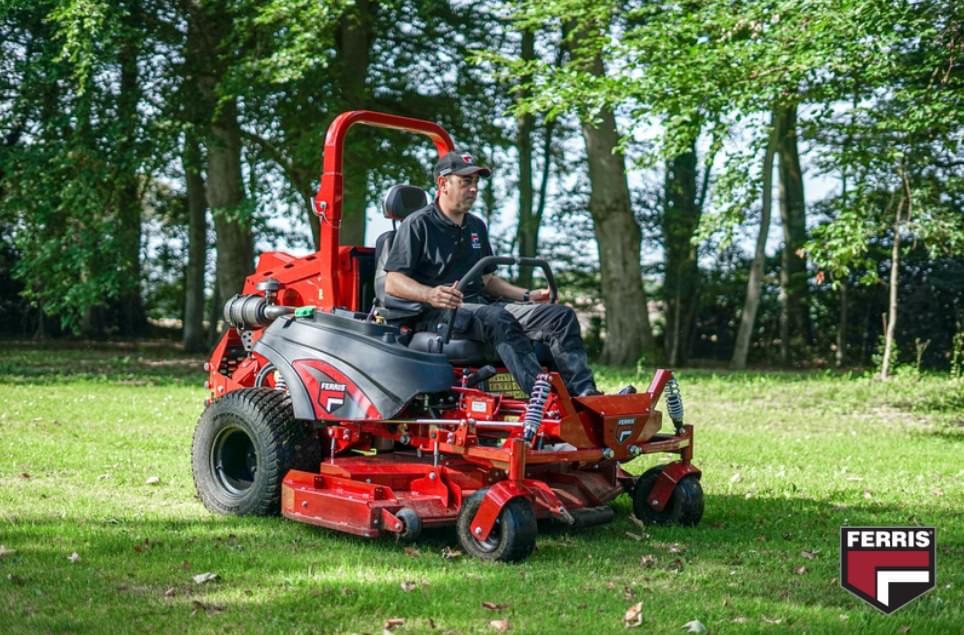
The groundcare industry, encompassing everything from landscaping to maintenance of public spaces and sports grounds, is undergoing a significant transformation towards sustainability. In the UK, this shift is being driven by increased awareness of environmental impact and stringent regulations aimed at reducing carbon emissions. Two emerging technologies are leading this green revolution in groundcare: Hydrotreated Vegetable Oil (HVO) fuel and electric-powered equipment. This blog explores how these options compare and what they mean for the future of sustainable groundcare in the UK.
What is HVO Fuel?
Hydrotreated Vegetable Oil (HVO) is a renewable diesel substitute made from vegetable oils or animal fats. The oils undergo a hydrogenation process, resulting in a high-quality diesel alternative that can be used in existing diesel engines without modification. This makes HVO a compelling option for those looking to reduce their carbon footprint without investing in new equipment.
Key Benefits of HVO Fuel for Groundcare:
- Compatibility with Existing Equipment: One of the primary advantages of HVO fuel is that it can be used in current diesel engines, meaning businesses can continue using their existing fleet of groundcare equipment.
- Environmental Impact: HVO fuel can significantly reduce greenhouse gas emissions compared to traditional diesel, contributing to cleaner air and a lower carbon footprint.
- Ease of Transition: For groundcare businesses, particularly those with large fleets, the ability to switch to a more sustainable fuel without changing infrastructure or equipment is a significant logistical and financial benefit.
Challenges of HVO Fuel:
- Cost: HVO is generally more expensive than traditional diesel, which can be a barrier for widespread adoption, especially in cost-sensitive sectors.
- Availability: The supply of HVO in the UK is still limited, which may pose challenges in consistent sourcing, especially for large-scale operations.
- Feedstock Sourcing: There are concerns regarding the sustainability and ethics of the feedstocks used in HVO production, such as palm oil, which can have significant environmental and social impacts.
The Rise of Electric Groundcare Equipment
Electric-powered groundcare equipment, including mowers, trimmers, and leaf blowers, is becoming increasingly popular due to advancements in battery technology and the growing availability of renewable energy. These tools offer a clean alternative to petrol and diesel-powered equipment, with several benefits.
Key Benefits of Electric Equipment:
- Zero Emissions: Electric groundcare equipment produces no emissions at the point of use, which is particularly beneficial in urban areas where air quality is a concern.
- Reduced Noise Pollution: Electric equipment tends to be quieter than traditional engines, making it ideal for use in residential areas, parks, and during times when noise reduction is important.
- Lower Operating Costs: While the initial investment in electric equipment can be higher, operating costs are generally lower due to cheaper electricity compared to fuel and reduced maintenance needs.
Challenges of Electric Equipment:
- Battery Life and Range: For larger groundcare operations, the battery life of electric equipment can be a limiting factor, requiring careful planning and potentially frequent recharging.
- Initial Cost: The upfront cost of electric equipment can be a deterrent, especially for smaller businesses or those with tight budgets.
- Infrastructure Needs: Adequate charging infrastructure is essential for the practical use of electric equipment, which may require significant investment and planning.
Comparing HVO Fuel and Electric Equipment in Groundcare
Infrastructure and Deployment: HVO fuel offers a seamless transition for businesses already using diesel equipment, requiring no changes to existing infrastructure. In contrast, switching to electric equipment may necessitate investment in new machinery and charging infrastructure, particularly for larger fleets.
Environmental Impact: Both HVO and electric equipment offer significant environmental benefits. However, the net impact of electric equipment can be influenced by the source of the electricity used for charging. Ideally, a switch to electric would be accompanied by a commitment to using renewable energy sources.
Operational Considerations: HVO allows for the continued use of powerful, durable diesel equipment, which can be particularly useful in heavy-duty groundcare applications. Electric equipment, while cleaner and quieter, may not yet match the performance of diesel-powered machines in all scenarios, particularly in terms of battery life and power.
The Future of Groundcare in the UK
As the groundcare industry in the UK continues to evolve, both HVO fuel and electric equipment will play crucial roles. For many businesses, a hybrid approach may offer the best balance, using HVO fuel in situations where diesel power is needed and electric equipment where emissions and noise must be minimised.
Ultimately, the choice between HVO and electric will depend on a variety of factors including budget, operational needs and environmental goals. As technology and infrastructure continue to develop, the groundcare industry will likely see increased adoption of these sustainable alternatives, leading to greener and more efficient operations across the UK.
If you’d like to explore our range of HVO and EV machines, get in touch today!
T: 01264 811260
W: thwhite.co.uk/machinery-imports
E: imports@thwhite.co.uk

